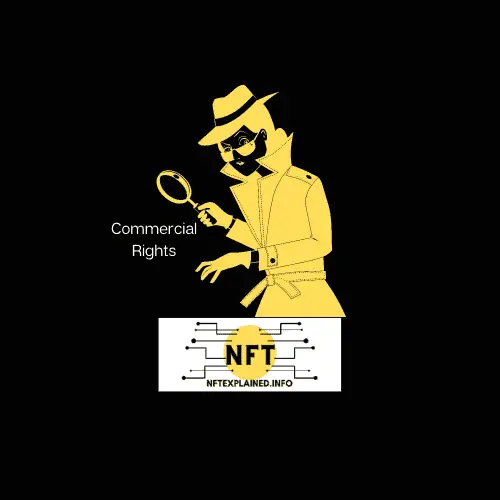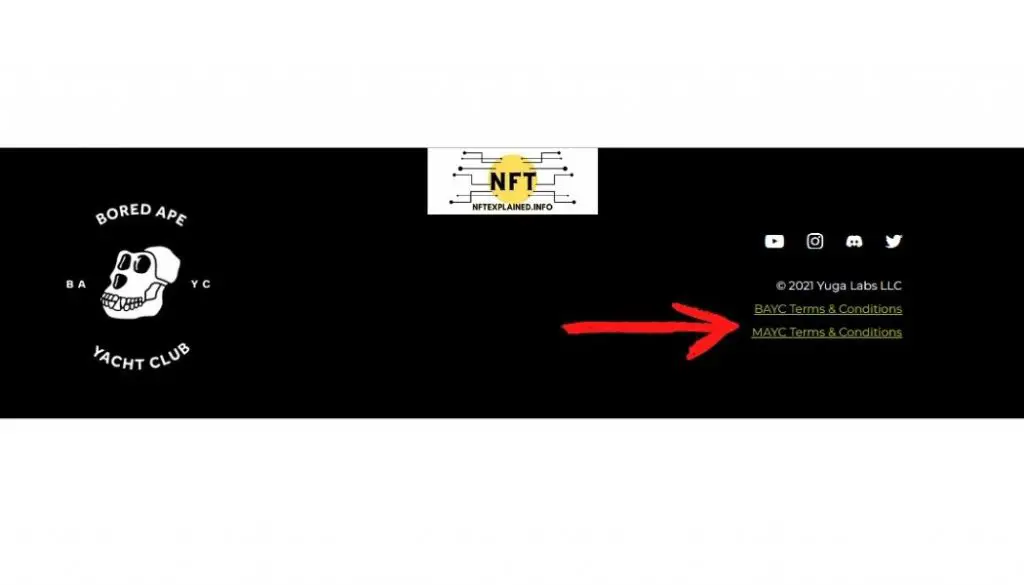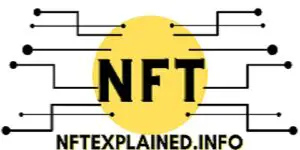
NFTs or non-fungible tokens are unique digital assets. When it comes to the rights received from purchasing an NFT, there are many misconceptions; NFTexplained.info will break down the commercial rights for NFT projects.
NFTexplained.info is a team of long term crypto investors who are well versed in the NFT space; many of us have blockchain experience and we have the goal of providing educational content. Our team does not consist of lawyers. This article is not legal advice and does not and is not intended to replace legal advice. The reader is advised and encouraged to consult with an independent attorney.
Let us dive in!
Commercial rights received in an NFT project vary from project to project. As a general statement, the smart contract address governing the purchase of the NFT often grants ownership but not intellectual property rights. The IP rights are frequently found in the project’s terms and conditions.
When NFTexplained.info says commercial rights, we are referring to any and all rights that are received when purchasing an NFT. There are numerous different license agreements that founders of projects have adopted; these agreements help define the rights that the purchasers have as well as the creators.
When our team refers to the smart contract, we mean the code attached to the NFT. When an NFT is purchased, the smart contract address of the NFT is received.
Smart contracts often include the provenance, timestamp of the transaction, and the new contract address or owner of the NFT, provided on a ledger.
If you are interested in getting smart about smart contracts, that guide can be found here.
The intellectual property rights received from purchasing the NFT can often be found on a separate website, often created by the founders of the project. While locating the terms and conditions or terms of use may be challenging and time consuming, it will allow you to better understand what is received when an NFT is purchased.

In the terms and conditions there will likely be a definitions section. In the definition section terms like ownership and personal use will hopefully be defined in a clear manner. Some terms and conditions will state that you own the token (key pointing to the location of the artwork or NFT on the blockchain), not the actual artwork itself while others state that you own the art without reservations.
This brings us to the next section of our article, where NFTexplained.info will shed light on how different projects allow for different types of commercial use.
When You Buy An NFT What Do You Actually Own?
There are many misconceptions surrounding what is actually owned when an NFT is purchased. This is because the answer varies from project to project – there is no accurate one-size fits-all reply. There are different rights which makes this a confusing topic however NFTexplained.info will break down some of the more common licenses used in the space.
When an NFT is purchased, the smart contract address of the NFT is owned; however, the license agreement for the NFT depends on the specified terms and conditions of that project. Some projects like BAYC state, “When you purchase an NFT, you own the underlying Bored Ape, the Art, completely.”
The licensing agreement the founder of Bored Ape Yacht Club exercised differs from other NFT projects. BAYC essentially allows the owner of the NFT to have unlimited commercial rights to the ape they own. Not all projects have adopted this approach that allows for the commercializing or the sale of items (e.g. merchandise).
CryptoKitties terms and conditions – as with many other NFT projects like BAYC- state that “Ownership of the NFT is mediated entirely by the Smart Contract and the Ethereum Network: at no point will we seize, freeze, or otherwise modify the ownership of any CryptoKitty.”
This means the smart contract address must point to your MetaMask public address (digital wallet address) for you to be considered the owner.
More common is the approach that CryptoKitties have taken, which aims to give the owner – proven by the smart contract – the ability to commercialize their NFT, albeit with earnings capped at US $100,000 gross revenue per year). Under this contract, Dapper Labs, the creators of CryptoKitties, still retain intellectual property rights to the underlying art but deliver to the purchaser a capped right to exploit their purchase.
While the terms are somewhat confusing, many lawyers agree that no copyright is automatically received though purchase as a written assignment is required for a transfer of copyright.
Many other projects allow for limited commercial use while still retaining the intellectual property rights to the actual work itself.
Some NFT projects don’t allow for any commercial use – these projects state that you own the token, not the actual artwork itself.
These projects typically state something along the lines of ownership allows for general or personal use; this is different then commercial use.
Rarely seen, some projects take the approach of delivering their assets into the public domain – this is creative material that is not protected by intellectual property laws such as copyright, trademark, or patent.
What is actually received when an NFT is purchased depends entirely on the NFT that is purchased and the underlying terms and conditions surrounding the NFT.
How Can NFTs Be Used For Commercial Use?
An NFT can only be used for commercial use if the project grants that right; this is dictated in a project’s terms and conditions. What “commercial use” means will likely be clearly defined and clearly scoped. For example, BAYC allows owners to sell merchandise like tee shirts of their ape.
As NFTexplained.info previously mentioned not all projects allow for commercial use and many projects limit commercial use.
Ownership is defined by the smart contract holder of the NFT, meaning the smart contract must point to the owner’s wallet address in order for that person to have access to commercial use.
Now we will dive deeper into what is meant by commercial use for the blue chip NFT project, BAYC.
In the terms and conditions governing BAYC NFTs, they state, “…Yuga Labs LLC grants you an unlimited worldwide license to use, copy, and display the purchased Art for the purpose of creating derivative works based upon the Art (“Commercial Use”). Examples of such Commercial Use would e.g. be the use of the Art to produce and sell merchandise products (T-Shirts etc.) displaying copies of the art.”
The NFT space is always changing and the technology is quite new. Our team is incredibly excited to see what will happen as time goes on. To get the latest news in this rapidly evolving space, follow our team on Instagram & Twitter!
